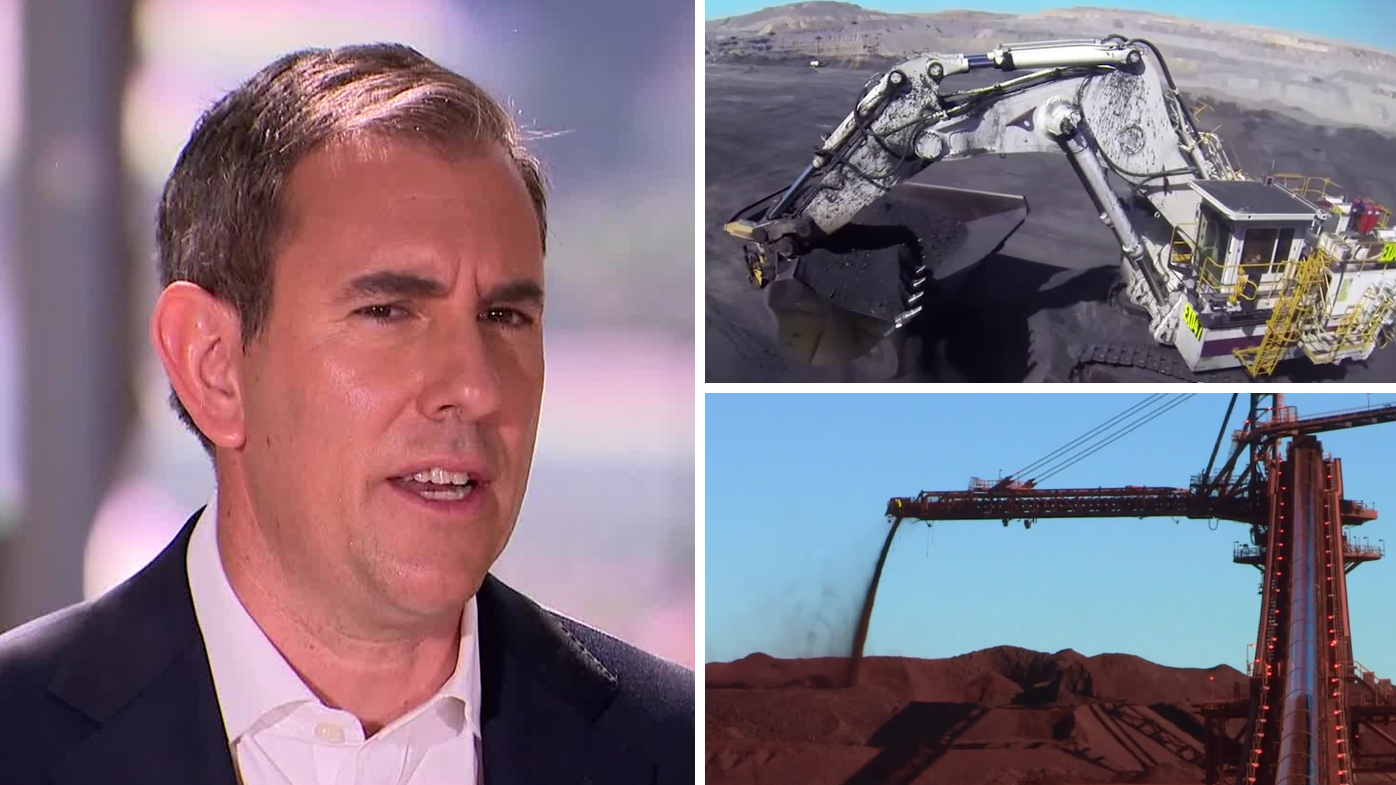
Jim Chalmers will this month become the first Australian treasurer to visit China since before the pandemic, at a time when both countries’ economies are faltering.
News of the upcoming trip emerged as the falling price of resources threatened household budgets across Australia and new polling revealed some ongoing difficulties for the government.
For so long a blessing to treasurers looking to balance the books, the prices of resources now threaten to blow a big hole in the budget.
READ MORE: How do you solve a shark murder mystery?
“When commodity prices weaken it has an impact on our economy and an impact on the budget,” Chalmers said.
The treasurer pointed to falls in the price of iron ore and coal, forecast to be a $4.5 billion hit to the budget bottom line.
“They tell us that there’s a lot of risk and uncertainty in the global economy – they impact our economy,” he said.
The tricky financial news came as Labor and the Coalition remained neck and neck in two-party terms, with a big lead for the opposition on primary votes – 37 per cent to 28 per cent – according to Nine newspapers’ Resolve Political Monitor.
More than one in three people surveyed opted for someone other than the two major parties.
While Anthony Albanese regained his lead as preferred prime minister by one point – 35 to 34 per cent – it was within the margin of error.
READ MORE: For 20 years, Donna took a popular heartburn medication
On the all-important cost of living front, the poll indicates 51 per cent of voters held Labor responsible for tackling inflation, compared with just 27 per cent blaming the Reserve Bank.
Shadow Treasurer Angus Taylor said if the government had done more to fight inflation “we would have seen the economy in a much stronger position to grow now”.
The biggest factor pushing commodity prices lower is a downturn in the Chinese housing market, an added pressure for Chalmers as he prepares to become the first treasurer behind the bamboo curtain since 2017.
“We don’t pretend that there aren’t complexities in this really important relationship, but it’s a relationship full of opportunity,” Chalmers said.
READ MORE: Major speed camera change headed to one state
Successive governments have relied on mining as the foundation to our economy.
The downturn increases the need for other industries to emerge, such as education, which is already worth a lot to the economy.
“It doesn’t just make us money it makes us friends because when students go back home they take the love for Australia with them,” Education Minister Jason Clare said.
But the number of foreign places is about to be capped, sending more international students to the regions in a move designed to free up more homes in cities.
“It helps us to return migration to those pre pandemic levels. If universities want more international students, then they’ll need to build more housing,” Clare said.
The risk remains that if studying here becomes too difficult, students and their money will stay overseas.
links to content on ABC
9News





